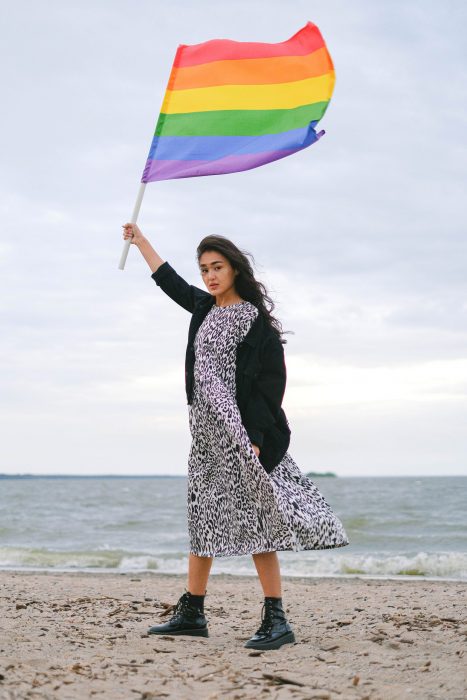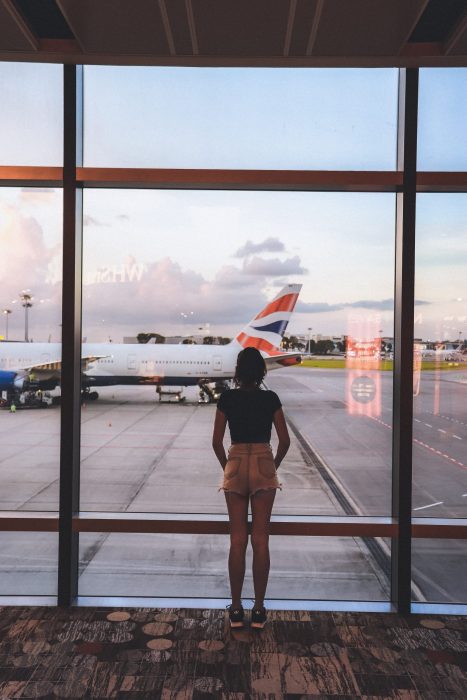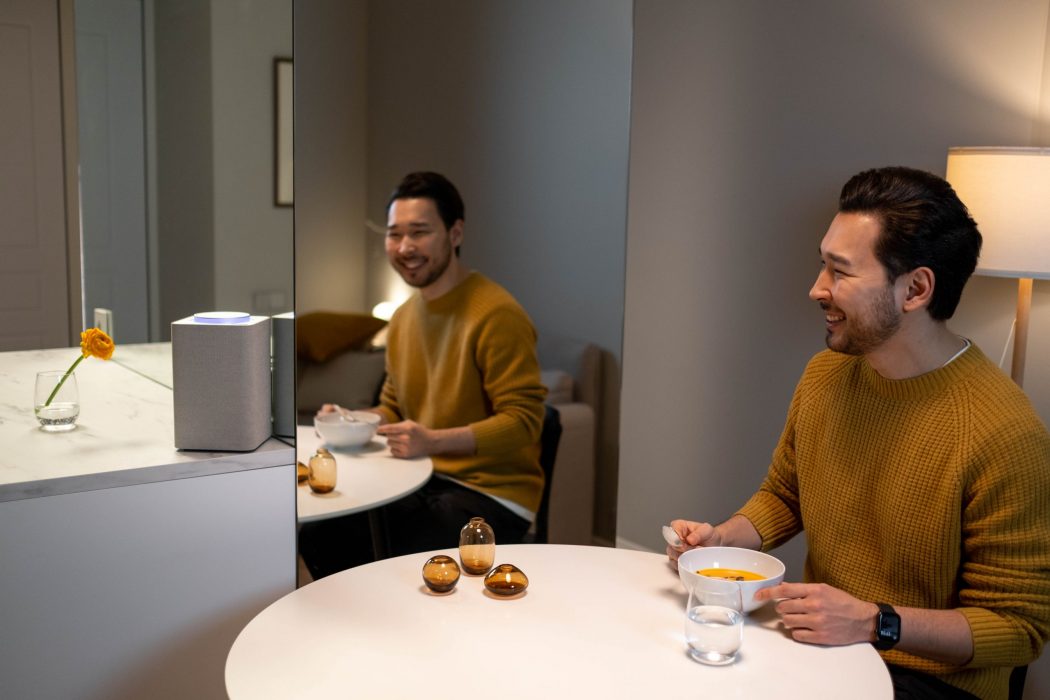Unlike their straight counterparts, who can get hitched and apply for a subsidised HDB BTO flat from 21 years old, the LGBTQ+ community can only wait with bated breath till they are 35 to get a flat of their own under the Singles scheme – which means losing out precious years in the process.
Without subsidised housing in their early years, their options are either to stay with their family, rent a place, or for the luckier (financially able) ones, buy a private property.
As part of a 3-part series to help the LGBTQ+ community in different life stages find their perfect home, this first-parter aims to educate the community on the importance of making mid- to long-term planning when it comes to a home purchase and not miss out in the later years.

In your 20s: Closeted, entering the workforce and starting out
Case 1: John is a 24-year-old fresh graduate from a local university. He started his first job with an income of $3400 and has to service his student loan in which he hopes to pay off in 5 years. He is in a committed relationship for 2 years but given this extra financial commitment, he could not move out with his partner and has to continue living with his parents in a 4-room HDB. Since he has not come out to his family, he wishes that one day he can get a place of his own so he does not have to live a closeted life.
Case 2: Irene, 22, has been working as a graphic designer since she completed her diploma at 19. Her relationship with her family has been on the rocks since she came out at 21. After countless fights and arguments, she decided to move out and rent a room for S$700/month. With an income of S$2,800, she does not have much savings left after deducting all her expenses. Her dream is to one day get a flat of her own. However, she’s still 13 years away before she turns 35 to qualify for an HDB flat.
The above are 2 common scenarios faced by many young LGBTQ+ individuals starting out to work in Singapore.
Faced with a high cost of living and financial commitments, their outlook of acquiring their first home seems distant. Many younger LGBTQ+ failed to plan for their home purchase, choosing instead to rent as the faster and easier solution.
A look at a private local LGBTQ+ rental group on Facebook shows a growing number of locals seeking out room rental and apartment-sharing. Though some might be in the situations like Irene with her hostile home situation, paying for rent over the long term can be detrimental as it delays their chance to save and purchase their own home.
Taking Irene’s S$700 monthly rental for 10 years – that amounts to S$84,000 – enough to pay for a down payment and stamp duty for a private apartment.

Funding your property: CASH, CPF and LOAN
For most people, buying a property means tapping into 3 possible sources of funds: cash, CPF and bank loan.
Our CPF contribution is pegged to age and income (capped at S$6,000) and we can only use our CPF Ordinary Account savings to partially pay for the property loan. The monthly CPF contribution of an individual is based on the table below:
|
Individual’s age
|
Ordinary account (% of wage)
|
Special account (% of wage)
|
MediSave (% of wage)
|
|
Up to 35
|
23
|
6
|
8
|
|
35 – 45
|
21
|
7
|
9
|
|
45 – 50
|
19
|
8
|
10
|
|
50 – 55
|
15
|
11.5
|
10.5
|
|
55 – 60
|
12
|
3.5
|
10.5
|
|
60 – 65
|
3.5
|
2.5
|
10.5
|
Source: CPF Board
A mortgage loan is determined by a person’s income, existing loan liabilities, age and the type of property purchased. A banker can easily run an assessment to give an indicative loan amount.
But in my experience, one of the biggest challenges many people face is the lack of cash savings to make the initial downpayment. Buying a property is one of the biggest purchases for many, but because they only do it once or twice in their life, they do not have enough understanding of the financial requirements. This results in poor financial planning and failure to save up earlier in their life.
Tips for LGBTQ+ individuals in their 20s who want to buy a home.
Let’s face it, you are unlikely to be able to afford a property on your own when you are in your 20s (unless you are lucky enough to have family funding to tap into). To help you achieve that goal, it is paramount that you start planning as soon as you can.
- Start defining some clear goals you hope you can achieve in 5, 10, 15 years. For example, goals like ‘buying a private property by age 30’ or ‘apply for an HDB BTO or resale flat by age 35′. In today’s property market, an entry price for private property could set you back by S$700k for a 1-bedroom resale condominium and S$900k for a new launch. An HDB 2-room BTO apartment hovers around S$150-200k and S$300-450k for a resale 3-room HDB.
|
For a S$700,000 (1-bedroom resale condo)
|
For a S$900,000 (1-bedroom new launch condo)
|
|
|
CASH (5%)
|
$35,000
|
$45,000
|
|
CPF + CASH (20%)
|
$140,000
|
$180,000
|
|
LOAN (75%)
|
$525,000
|
$675,000
|
|
BUYER STAMP DUTY
|
$15,600
|
$21,600
|
|
INCOME TO QUALIFY FOR LOAN AMOUNT
|
$4,500
|
$5,650
|
- Develop the habit of saving, and keep part of it towards your home purchase. This is probably easier said than done, as income for most in their 20s might not be high. Coupled with the high cost of living, there’s also the tendency to overspend on daily expenses. A good tip is to set aside 15-20% of your salary for savings.
- Speak to an LGBTQ+ affirming financial adviser to work with you on your goals and recommend ways to make your savings work harder for you. With higher-yielding investment products such as short- to mid-term endowment funds, fixed deposits, mutual funds, etc., forcibly locking them up may be a good way to save consistently. However, refrain from overly risky investments that affect your ultimate goal to grow your property fund.
- Your CPF OA savings earn an interest of 2.5% per annum. Compounded over time, the amount can grow healthily towards your property fund. So if you plan to use your CPF OA for short- to mid-term investments, make sure they yield you more than 2.5%. Also, ensure they are fairly liquid so you can convert them back to your OA account when needed.
- If you are currently renting a place and really want to buy your own home one day, you should rethink if rental is absolutely necessary. Is it a want more than a need? If you don’t have a choice, then think of how to minimise the rental cost by sharing a room or a place with someone.
- If you are a couple in a committed relationship, consider saving together and planning towards co-owning a property as part of your goals. Having double-income savings definitely help you both achieve your goals faster. That said, when it comes to couple planning, you should speak to an LGBTQ+ affirming realtor and legal advisor who can highlight to you things to look out for when you co-invest in property together.

In your 30s: Living the life, saved just enough, turning 35
Case 4: Carol (32) and Michelle (30) have been in a relationship for 5 years. They have been working for 5-7 years and have stable careers. They love to travel and have frequent holiday trips around the world. Both of them live with their families but would like to buy a place together. They are considering the option of getting an HDB together when both of them turn 35. Alternatively, they could also buy private property now, but that will wipe out their savings and they will need to reduce their travel trips to cut their expenses.
Case 5: Jackson just celebrated his 30th birthday and has been saving up to buy his first home. He works as an investment banker and has been able to apply his knowledge in investments, enough to save S$120k in cash and a CPF OA of about S$100k. He is considering a resale condo or a new launch as an investment.
Case 6: Peter has been sharing a rental apartment with a friend for years. Finally, he is turning 35 years old and looks forward to buying a flat. However, he is debating whether to apply for a 2-room BTO flat from a non-mature estate or purchase a 3-room HDB flat from the resale market with more location options.
For many young adults, turning 30 marks another milestone of adulting. Like the 3 cases above, many have gained some solid years of work experience and are now more stable – professionally and financially. They have earned the ability to spend and indulge in lifestyle needs such as travelling, entertainment and material things. However, the 30s also present them with the opportunity to start their first property purchase. So between lifestyle indulgences and a home purchase, they have to choose what they are willing to sacrifice.

Tips for LGBTQ+ in their 30s
- A lot of LGBTQ+ think 35 years old is the age to plan for their home. While yes, HDB policy allows single Singaporeans to buy a flat only when they turn 35, it doesn’t mean they have to wait. Buying a property requires a substantial about of cash down payment, and many make the mistake of not planning and saving enough by then, only to find out too late that they are short of funds.
- Considering a place before 35: If you have done your homework to save up early, you would have enough to make a cash down payment for a small private property. The years of working would also allow you to accumulate enough CPF and secure a bank loan to fund the property. You can choose to buy a resale for your own stay, or a new launch as an investment to make some capital gains.
- Buying a property in your early 30s: This allows you to secure a longer loan tenure and the possibility of profiting from the first property, eventually selling for a profit and making another purchase before you hit 40.However, if you purchase an HDB when you are 35, you will be locked into a 5-year MOP and you could not sell or buy another property till you are at least 40 years old. The point to note here is that the older you get, the harder it will be for you to get a mortgage as loan tenures become shorter and your monthly instalment payment will be higher.
- If you choose to buy an HDB flat at 35, and affordability permits, it will be beneficial to consider a resale 3 /4-room HDB flat over a BTO flat. The reason being that you can move into the resale flat immediately upon completion while a BTO flat requires a waiting period of 3-4 years (or longer) for construction.You will be almost 40 when you get your keys, and another 5-year MOP would push you into your mid-40s before you can make another property purchase – not a good choice if you plan to upgrade to another property in the future.
- For couples, the option of co-owning a private property together may be attractive. Leveraging on dual incomes allow both of you more options, such as purchasing a larger unit. Alternatively, both of you can consider buying a separate unit each – one for own-stay, another for investment. However, to do this properly, consult an LGBTQ+ affirming realtor and legal advisor to help you structure something that helps both of you fulfil your goals without exposing either to financial risks.
- For couples planning to buy an HDB together under the Joint Singles Scheme, make sure to check if you can qualify for CPF housing grants, and if you need to get a loan together to afford the property. However, if your combined income is above S$14,000, you will both not qualify for the CPF Enhanced Housing Grant. Instead, you might want to reconsider if a joint single scheme purchase is the best option.Some couples may opt to buy the HDB under one name using the Single Singapore Citizen Scheme as a single owner, and saving the other person’s name to purchase another potential property in the future for investment. For such planning, consult an experience LGBTQ+ affirming realtor to help you structure the plan.
For the next part of our series, I will cover property purchases for those entering their next life stage in their 40s and 50s.
About the Author
William Tan is a licensed realtor with a speciality in servicing the LGBTQ+ community. He is also the co-founder of Prident, a non-profit LGBTQ+ professional collective aimed at helping the community on economic wellbeing issues. William regularly writes and runs webinars to share his knowledge on property investment for LGBTQ+ and has been featured in EdgeProp Singapore, The Edge, Esquire magazine and The Financial Coconut podcast. He has helped many LGBTQ+ clients with their property portfolio – market to sell, buy and rent properties. He also runs an online LGBTQ+ Clinic to answer private questions from the community.
Read more on PRIDENT here.
–
Looking for a property? Find the home of your dreams today on Singapore’s fastest-growing property portal 99.co! If you would like to estimate the potential value of your property, check out 99.co’s Property Value Tool for free. Meanwhile, if you have an interesting property-related story to share with us, drop us a message here — and we’ll review it and get back to you.
The post LGBTQ+ Guide: Planning your home purchase in your 20s & 30s appeared first on 99.co.

